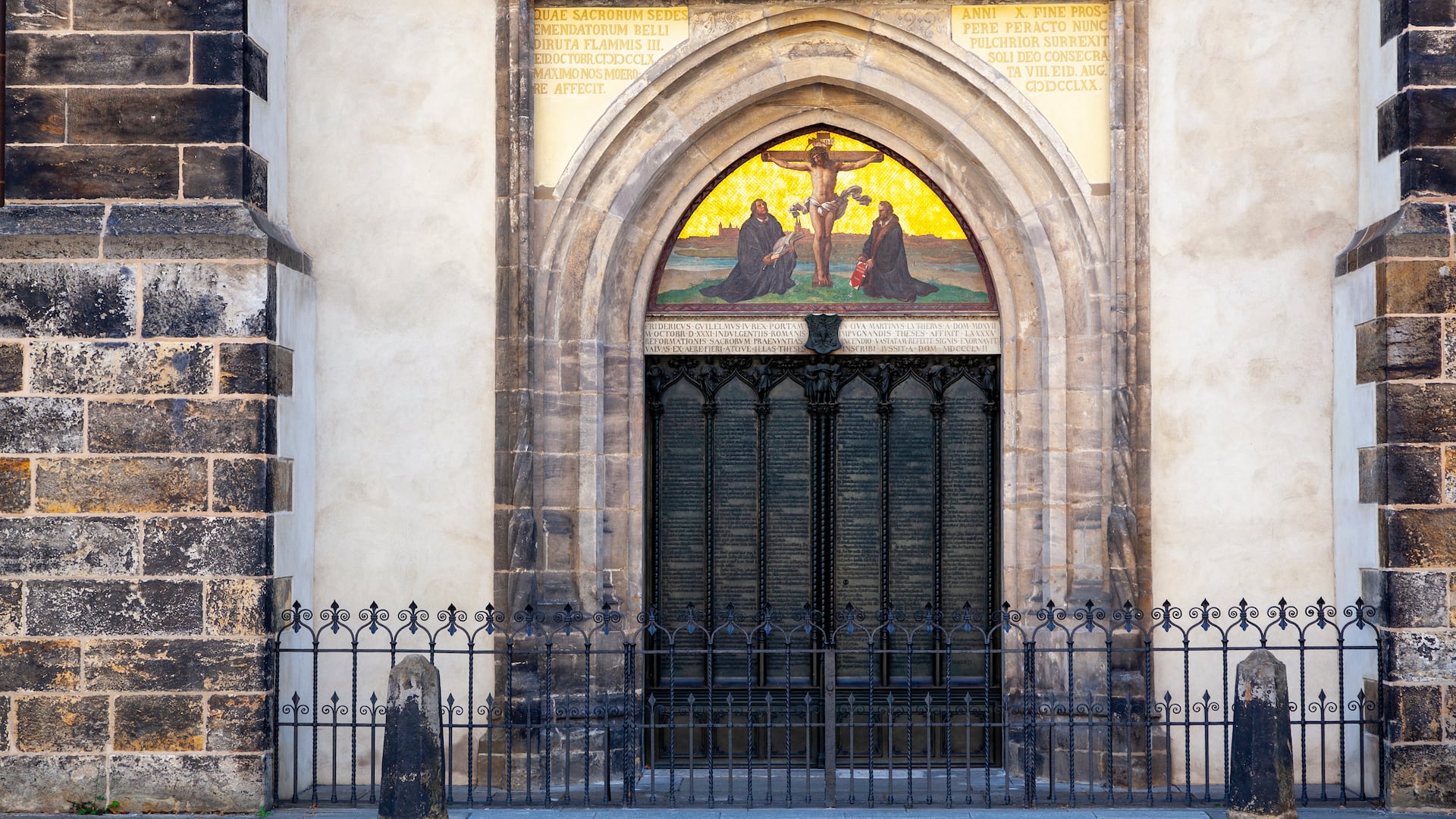If you have ever visited Wittenberg, Germany and have taken the time to tour its famous Castle Church, you may have made the same observation I did: The best part of the building is its doors. Castle Church is, of course, the spot where Martin Luther chose to post his Ninety-Five Theses. Centuries later, King Frederick William IV chose to commemorate the event by commissioning a beautiful set of bronze doors inscribed with Luther’s words. And, though they’ve been refurbished in the years between, they hang there still as the city’s foremost landmark.
Any tour of the cathedral begins with the doors. Once the tourists have gazed at them for a time, snapped the requisite photographs, and heard how Luther inadvertently sparked what we now know as the Protestant Reformation, the tour leads inside. And the inside is rather uninteresting by comparison. There are a few sculptures high up on the columns and a number of graves embedded in the floor, including Luther’s. But in most ways it is just another of Europe’s innumerable cathedrals without much to distinguish it from all the others.
I don’t know about you, but I consider it a disappointment when the doors to a building are the best part of the building. Likewise, it’s a disappointment when the opening scene of a film goes unsurpassed by any that follow over the next two hours, and a disappointment when the opening strains of an oratorio are the composer’s best. Handel was no fool when he made the “Hallelujah” chorus Messiah’s forty-fourth movement rather than its first.
This life can be pretty good at times. By God’s grace, we experience many pleasures and many joys. This world is full of delights and we honor God when we acknowledge them, experience them, and express gratitude for them. “Light is sweet, and it is pleasant for the eyes to see the sun,” says Solomon metaphorically. “So if a person lives many years, let him rejoice in them all” (Ecclesiastes 11:7–8a). We honor God when we marvel at a sunrise, when we savor a cup of coffee, when we raise our hands in worship, when we fall into bed with the husband or wife of our youth.
But even as we acknowledge all this, we must also acknowledge that this world is not Wittenberg and the Christian gospel is not Castle Church. The doors are not the best part. Rather, the pleasures of this life are nothing more than the the foyer, the atrium, the entranceway to much greater joys beyond. After all, no joy here is untouched by at least some measure of sorrow and no pleasure here is unattended by at least some element of pain. None of our pleasures are pure and unadulterated, but all are in some way clouded, all in some way alloyed. Every pleasure that fulfills some longing simply exposes another.
There is freedom in understanding and admitting this, for it means we can enjoy our pleasures as they are instead of being disappointed that they are not all we might wish them to be. We can enjoy them even though they are incomplete, even though they inevitably leave us ultimately unsatisfied. We can enjoy them as pleasures that gesture us toward greater pleasures to come. And we can understand that, when compared to the glory that will someday be ours, they are but the plain and unadorned doors that open into a splendid palace that is far beyond all we have ever imagined.










